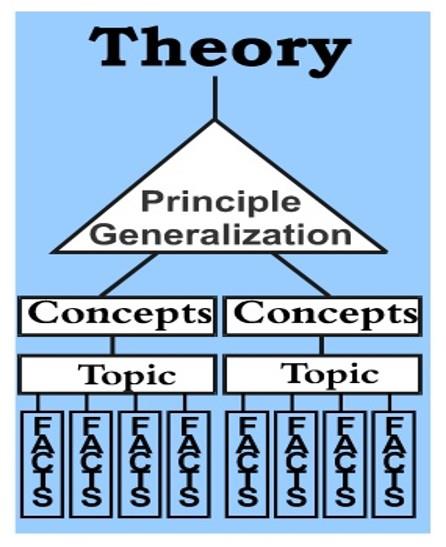Concept-Based Learning
-
"The future belongs to a very different kind of person with a very different kind of mind--creators and empathizers, pattern recognizers, and meaning makers. These people--artists, inventors, designers, storyteller, caregivers, consolers, big picture thinkers--will now reap society's richest rewards and share its greatest joys."Daniel Pink
- Concept-based instruction models raise the intellectual bar by teaching to ideas (generalizations/principles) and by using the topics and facts as foundational support for the deeper understandings.
- Topics and facts do not transfer. They are locked in time, place, or situation.
- Concepts and Generalizations transfer through time, across cultures, and across situations.
What It Does
-
- Aligns curriculum, instruction and assessment.
- Emphasizes and identifies what students should know, understand and do.
- Identifies concepts in curriculum, rather than just facts.
- Organizes the concepts/content into instructional units/lessons that contextualize the standards.
- Unites big ideas for deeper understanding.
What is a Big Idea?
-
"An idea is big if it helps us make sense of lots of confusing experiences and seemingly isolated facts. It‘s like the picture that connects the dots or a simple rule of thumb in a complex field. For example: The water cycle is a big idea for connecting seemingly discrete and one-way events (the water seems to just disappear as it evaporates). The heroic cycle enables us to comprehend literature from many places, cultures, and times. Measure twice, cut once is a profound reminder about how to avoid heartache and inefficiency in building anything.
A big idea is thus a way of seeing better and working smarter, not just a vague notion or another piece of knowledge. It is more like a lens for looking than another object seen; more like a theme than the details of a narrative; more like an active strategy in your favorite sport or reading than a specific skill. It is a theory, not a detail."
Grant Wiggins
Central Ideas
-
Central Ideas are the enduring understandings, the big ideas, the answer to the "so what" of a particular study.
- Conceptual understanding requires content knowledge, but the reverse is not true.
- Students knowing the science or social studies standards does not necessarily signify their deeper understanding of concepts and principles.
- Central ideas are NOT topical – they are conceptual.
Examples:
It is NOT about Transportation – it is about movement and/or the wheel.
It is NOT about Oregon Trail or Trail of Tears – it is about migration.
It is NOT about the structure of Parliament – it is about governance.
It is NOT about the food pyramid – it is about nutritional needs changing over time.



